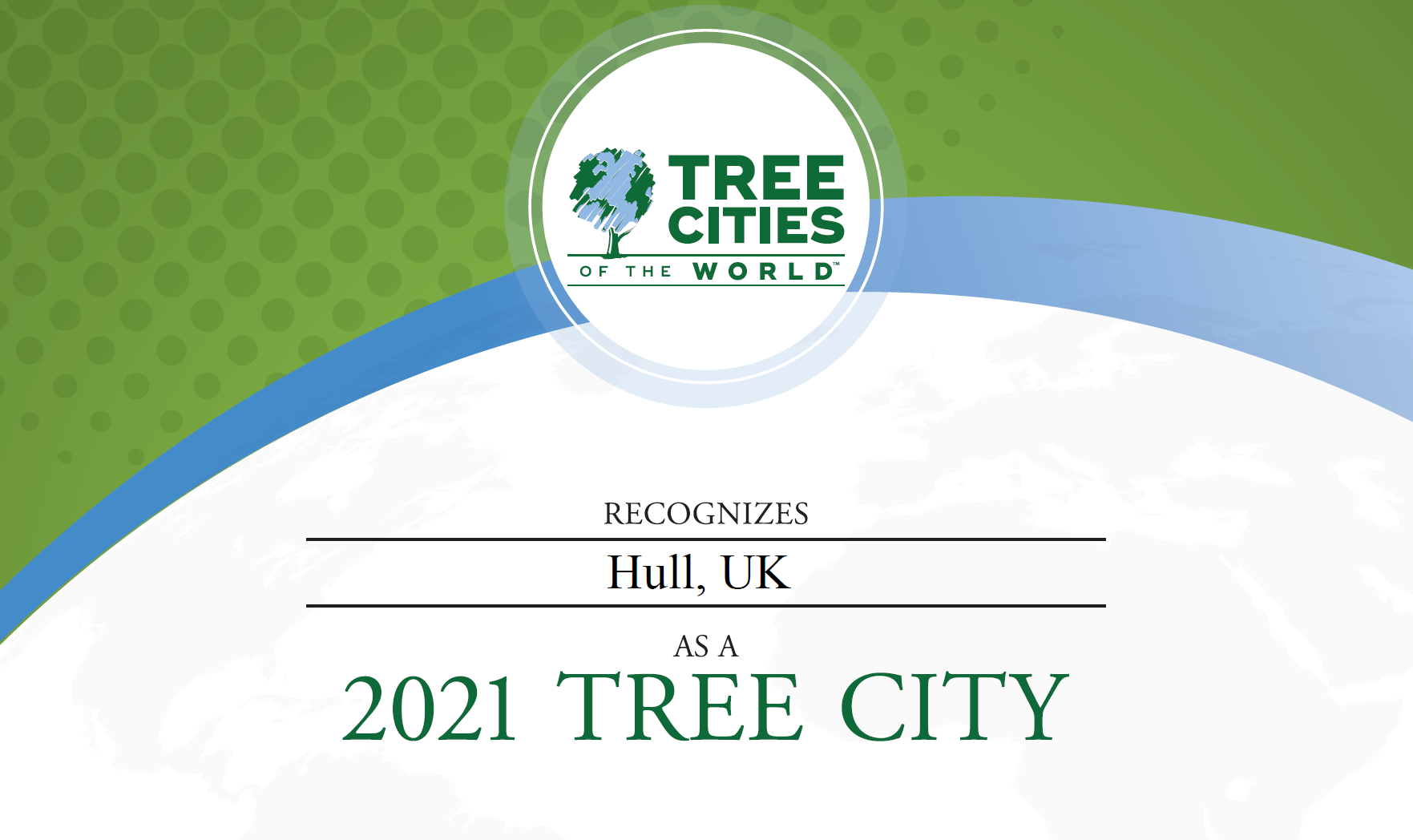Hull has been recognised as one of only 138 Tree Cities of the World for its continued efforts to grow and maintain green spaces.
Tree Cities of the World is an accreditation provided by the Arbour Day Foundation and the Food and Agriculture Organization of the United Nations. It recognises cities globally that have demonstrated a clear approach to increasing and protecting tree cover, as well as engaging communities in tree planting and management.
In 2021, Hull planted 7,760 trees and volunteers worked 2,000 hours.
In total, 138 cities from 21 countries were awarded the accreditation, 19 being UK cities.
To earn Tree Cities of the World recognition, Hull demonstrated its commitment by meeting five programme standards: establish responsibility for the care of trees, set rules to govern the management of forests and trees, maintain an updated inventory or assessment of local tree resources, allocate resources for a tree management plan, and hold an annual celebration of trees to educate residents.
Through this recognition, Hull will join a network of like-minded cities who recognise the importance of trees in building healthy, resilient and happy cities.
Martin Budd, Climate Change Manager at Hull City Council said: “We’re delighted to maintain our status as Tree City of the World for the second year running.
“It is deserved recognition for the work that council staff, voluntary groups and residents have done to improve our parks and open spaces and plant new trees to make out city better for people and nature. Being one of only 138 cities recognised globally is fantastic achievement.”
Dan Lambe, chief executive of the Arbor Day Foundation said: “Trees are important to people, no matter what country they are from or what language they speak. We all want to live in a city that is healthy, resilient, and beautiful – trees serve as a common language to make that possible. Being recognised in the Tree Cities of the World programme means that your city is committing to go above and beyond to define trees as critical green infrastructure for your citizens.”
Hull City Council has committed to a strategy of making the city carbon neutral by 2030. In addition to supporting that objective, increasing the number of trees in a community can also help reduce costs for energy, stormwater management, and erosion control.
The council has also recently announced its participation in the new Oh Yes! Net Zero campaign, encouraging local businesses and residents to drive down their emissions and take positive action on climate change.
